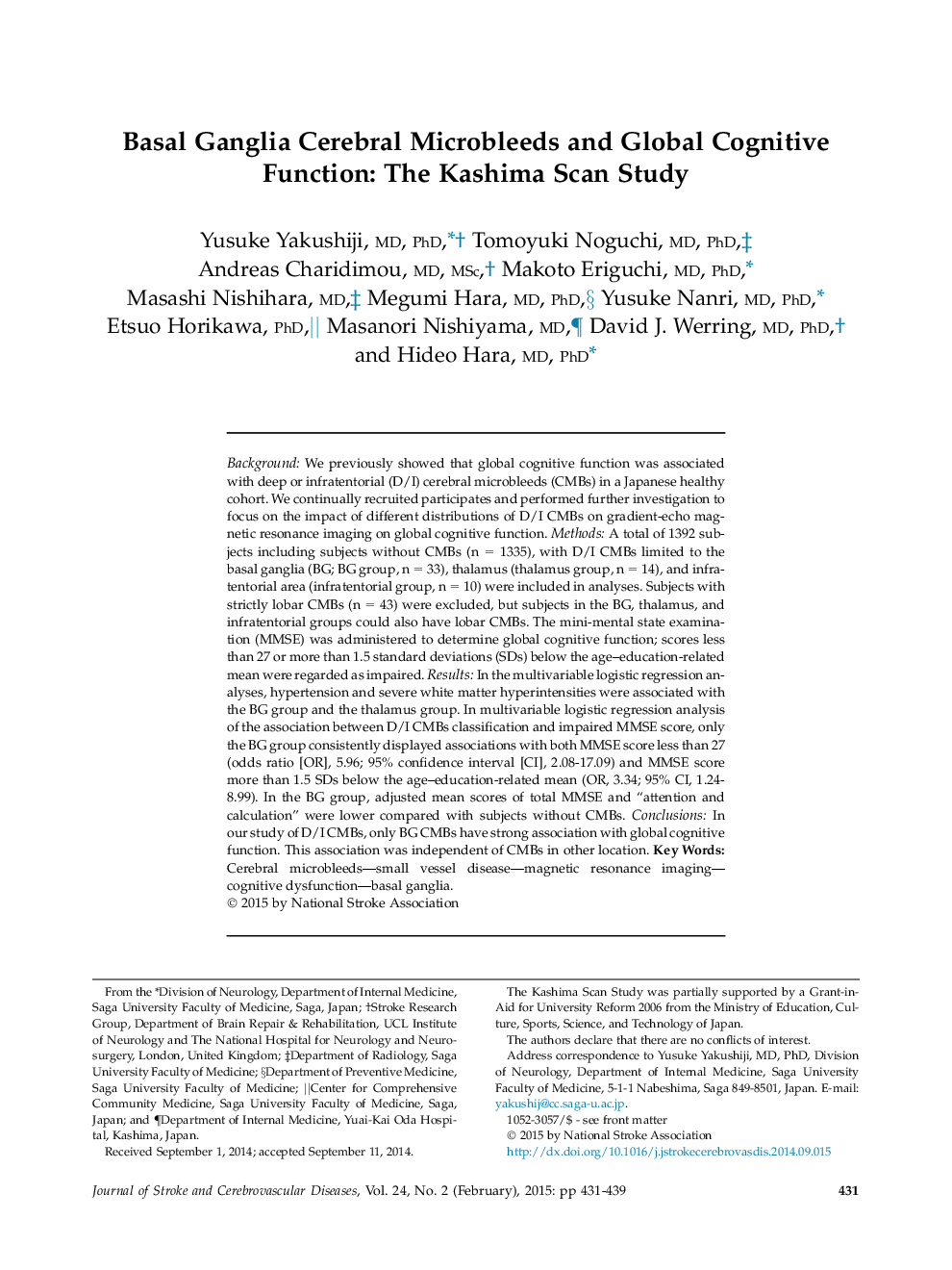| کد مقاله | کد نشریه | سال انتشار | مقاله انگلیسی | نسخه تمام متن |
|---|---|---|---|---|
| 5873209 | 1144482 | 2015 | 9 صفحه PDF | دانلود رایگان |
BackgroundWe previously showed that global cognitive function was associated with deep or infratentorial (D/I) cerebral microbleeds (CMBs) in a Japanese healthy cohort. We continually recruited participates and performed further investigation to focus on the impact of different distributions of D/I CMBs on gradient-echo magnetic resonance imaging on global cognitive function.MethodsA total of 1392 subjects including subjects without CMBs (n = 1335), with D/I CMBs limited to the basal ganglia (BG; BG group, n = 33), thalamus (thalamus group, n = 14), and infratentorial area (infratentorial group, n = 10) were included in analyses. Subjects with strictly lobar CMBs (n = 43) were excluded, but subjects in the BG, thalamus, and infratentorial groups could also have lobar CMBs. The mini-mental state examination (MMSE) was administered to determine global cognitive function; scores less than 27 or more than 1.5 standard deviations (SDs) below the age-education-related mean were regarded as impaired.ResultsIn the multivariable logistic regression analyses, hypertension and severe white matter hyperintensities were associated with the BG group and the thalamus group. In multivariable logistic regression analysis of the association between D/I CMBs classification and impaired MMSE score, only the BG group consistently displayed associations with both MMSE score less than 27 (odds ratio [OR], 5.96; 95% confidence interval [CI], 2.08-17.09) and MMSE score more than 1.5 SDs below the age-education-related mean (OR, 3.34; 95% CI, 1.24-8.99). In the BG group, adjusted mean scores of total MMSE and “attention and calculation” were lower compared with subjects without CMBs.ConclusionsIn our study of D/I CMBs, only BG CMBs have strong association with global cognitive function. This association was independent of CMBs in other location.
Journal: Journal of Stroke and Cerebrovascular Diseases - Volume 24, Issue 2, February 2015, Pages 431-439
